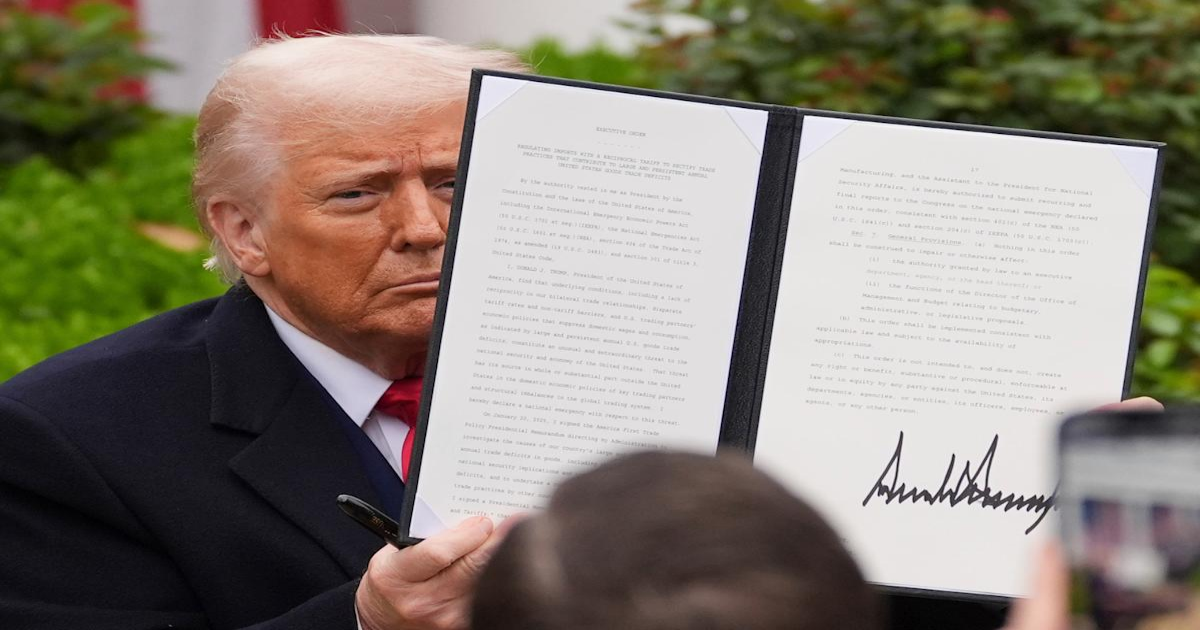Nvidia (NVDA), TSMC (TSM), and other chip stocks fell Wednesday in after-hours trading following President Trump’s announcement of sweeping reciprocal tariffs affecting the semiconductor supply chain.
Nvidia stock dropped 4.7%, while rival Advanced Micro Devices (AMD) dipped 4.5%. Broadcom (AVGO) fell 5.2%, and Micron (MU), which supplies memory chips for Nvidia’s GPUs — graphics processing units — sank 6.4%.
TSMC, the Taiwanese contract chip manufacturer that makes the world’s most advanced semiconductors for Nvidia and Apple (AAPL), sank 4.8%.
NasdaqGS – Delayed Quote • USD
Trump said Wednesday afternoon in a much-anticipated announcement that the administration is implementing reciprocal tariffs varying by country on top of a 10% worldwide base tariff. That includes reciprocal tariffs of 34% and 32% on imports from China and Taiwan, respectively. The two are some of the largest exporters of servers, including AI servers using Nvidia’s GPUs, to the US.
US tariffs on imports from these countries would make purchases of servers using Nvidia’s GPUs more expensive, which could hamper demand for the AI chips.
Taiwan exported roughly $33 billion worth of computer parts including Nvidia’s GPUs to the US in 2024 as well as $19 billion worth of “computers,” a category that includes servers equipped with Nvidia’s chips, according to trade data compiled by supply chain analyst and Michigan State University professor Jason Miller.
China exported just over $16 billion worth of computer parts (including Nvidia’s GPUs) to the US as well as $34 billion worth of “computers,” including servers.
“Taiwan, they took all of our computer chips and semiconductors,” Trump said Wednesday. “We used to be the king, right? We were everything. We had all of it. Now we have almost none.”
TSMC is the leading producer of the world’s most advanced computer chips for American companies such as Apple, AMD, Nvidia, and even its rival Intel (INTC). American chipmakers have outsourced production due to the costs of operating chip manufacturing plants, or “fabs.”
It’s unclear if or how tariffs would help bring back domestic chip manufacturing to the US, but Trump pointed to TSMC’s recently announced $100 billion investment in expanding its domestic chip manufacturing footprint in Arizona.
TSMC began the process of expanding production to the US under Biden with funding from the US Chips and Science Act — grants that Trump administration officials have suggested could come under further review.
” To any company that objects to our common sense, reciprocal tariffs … My answer is very simple,” Trump said. “If they complain, if you want your tariff rate to be zero, then you build your product right here in America because there is no tariff if you build your plant, your product in America.”
